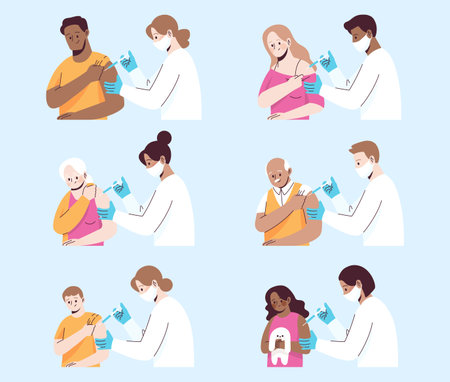Understanding Antenatal Checkups in the Indian Context
As a mother living in India, I have learned firsthand how important antenatal checkups are during pregnancy. These regular visits to a healthcare provider are not just a routine—they are a crucial part of ensuring both mother and baby remain healthy throughout the pregnancy journey. In India, antenatal care often blends modern medical practices with local traditions and beliefs. Many families trust their community health workers or Accredited Social Health Activists (ASHAs) who visit homes, offer guidance, and sometimes even accompany expectant mothers to government hospitals or clinics. Common practices during these checkups include checking blood pressure, monitoring baby’s growth, giving iron and calcium supplements, and screening for common issues like anaemia. In many communities, elders share traditional wisdom alongside medical advice, such as suggesting special diets or home remedies. For us Indian mothers, these visits are more than just medical—they’re also social occasions where family support is visible, blessings are given, and age-old customs are observed with pride. This unique blend of science and tradition makes antenatal care in India both meaningful and deeply personal.
Role of ASHA Workers and ANMs in Rural and Urban India
During my own pregnancy journey in India, I came to deeply appreciate the vital role played by Accredited Social Health Activists (ASHAs) and Auxiliary Nurse Midwives (ANMs). Whether you live in a bustling metro like Mumbai or a remote village in Rajasthan, these frontline health workers are often the first—and sometimes the only—point of contact for expectant mothers seeking antenatal care. Their presence provides not just medical support but also emotional reassurance, especially for women navigating pregnancy far from tertiary hospitals or private clinics.
Responsibilities of ASHA Workers and ANMs
| Role | ASHAs | ANMs |
|---|---|---|
| Primary Focus | Community mobilization, awareness, home visits | Clinical services, checkups, immunizations |
| Antenatal Support | Identifying pregnant women, encouraging ANC registration, escorting mothers to PHCs | Conducting antenatal checkups, monitoring high-risk pregnancies |
| Health Education | Counselling on nutrition, hygiene, birth preparedness | Providing health talks during clinic sessions and home visits |
| Record Keeping | Maintaining household survey records, updating due list of beneficiaries | Maintaining Mother-Child Protection Card, medical records |
Their Connection with Expectant Mothers
I still remember how our local ASHA did regular home visits during my third trimester—checking my blood pressure, reminding me about iron tablets (which are called “Lal Goli” in many villages), and answering all my anxious questions about delivery. For many women like me, ASHAs become trusted “didi” figures—a blend of friend and healthcare guide. ANMs, on the other hand, are the technical backbone at sub-centres and PHCs; their skilled hands ensure safe antenatal checkups, vaccinations, and timely referrals if complications arise.
Bridging Gaps Between Rural & Urban Settings
The impact of ASHAs and ANMs is perhaps most evident in rural areas where specialist doctors are scarce. However, even in urban slums or peri-urban settlements, their work bridges critical gaps—ensuring every mother gets at least four antenatal checkups as per Indian government guidelines. Their culturally sensitive approach means advice is tailored to local beliefs—whether it’s explaining the importance of “TT injection” or busting myths around diet during pregnancy.
In summary, ASHA workers and ANMs form the backbone of India’s maternal healthcare system. Their dedication ensures that women—regardless of geography or social status—receive essential antenatal care and compassionate support throughout their pregnancy journey.

3. What to Expect During Home Visits
When an Indian health worker, such as an ASHA (Accredited Social Health Activist), ANM (Auxiliary Nurse Midwife), or community nurse, visits your home during pregnancy, it can feel both reassuring and a bit nerve-wracking—especially if it’s your first baby. From my own experience, these visits are warm, informative, and truly supportive. Here’s what typically happens during a home visit and what you can expect as an expecting mother.
Services Offered During a Home Visit
The health worker usually arrives with a friendly smile and her signature bag of medical essentials. She will start by checking your blood pressure, weight, and sometimes even blood sugar levels using simple equipment. She’ll ask about your last antenatal checkup, any complaints like swelling or headaches, and whether you’re experiencing symptoms such as nausea or tiredness. If required, she might offer basic medications like iron-folic acid tablets or calcium supplements on the spot.
Most importantly, she’ll ensure you’re up to date with your TT (Tetanus Toxoid) injections and discuss upcoming appointments at the Primary Health Centre (PHC) or Anganwadi. Sometimes, the health worker may also do a quick check on your home environment—making sure you have clean drinking water and proper hygiene facilities.
Common Questions Asked by Health Workers
Expect a lot of questions—but don’t worry, they’re all aimed at keeping you and your baby healthy! The health worker may ask about:
- Your diet: Are you eating enough fruits, veggies, and proteins?
- Your daily routine: Are you getting enough rest? Do you do any heavy work?
- Your mental well-being: Are you feeling anxious or stressed?
- Any warning signs: Bleeding, fever, severe pain, or reduced baby movement.
- Family support: Does anyone help you at home? Is there someone who can accompany you to checkups?
This felt very personal to me—the ASHA in my area always asked about my sleep patterns and encouraged me to speak up about any discomforts without hesitation.
Support Mothers Receive
The best part about these home visits is the emotional support. Indian health workers are trained not only to provide medical care but also to be empathetic listeners. They explain how to deal with common pregnancy issues using local remedies (like jeera water for acidity or light yoga for back pain). Many mothers find comfort in their guidance about hospital deliveries versus home births—especially when family elders have strong opinions.
If you have paperwork confusion regarding Janani Suraksha Yojana (JSY) benefits or need advice about government schemes for pregnant women, your health worker will patiently walk you through each step. I found this support invaluable—I wouldn’t have known how to apply for financial assistance without her help!
A Personalized Connection
Ultimately, every visit feels less clinical and more like chatting with a trusted elder sister from the community. You build a bond over time; she remembers your due date, asks about your older children if any, and often checks in just before festivals to make sure youre not overexerting yourself during celebrations. This blend of professional care and cultural familiarity makes antenatal home visits in India truly unique.
4. Challenges Faced by Expecting Mothers
In my own experience, and through conversations with other mothers in our community, it is clear that expecting mothers in India face several unique hurdles during their antenatal journey. While the support from ASHA workers and Anganwadi didis is invaluable, there are real-life challenges that often make regular checkups and home visits difficult to access or fully benefit from.
Distance and Transport Issues
One of the most common problems we hear about is the distance between villages and healthcare centers. In many rural areas, health facilities are located far away, requiring long walks or costly transport. For expecting mothers, especially those in late pregnancy, this can be a major barrier. Even when health workers offer home visits, they may not always cover remote hamlets due to lack of roads or transport facilities.
| Challenge | Impact on Mothers | Common Solutions Tried |
|---|---|---|
| Long Distance to Clinics | Missed checkups; delayed care | Pooling for auto-rickshaw; depending on ASHA visits |
| Poor Roads/No Transport | Physical strain; reluctance to travel | Community vehicles (rare); walking in groups |
Social Stigma and Cultural Barriers
Cultural beliefs and family traditions play a huge role. Some families still consider discussing pregnancy or seeking outside help as shameful or unnecessary. In-laws or husbands may restrict women from attending checkups, fearing “bad influence” or gossip. We have seen cases where young brides are discouraged from speaking openly with health workers, limiting their understanding of vital prenatal care.
Lack of Awareness and Misinformation
Sometimes, misinformation spreads faster than correct advice. My neighbour thought iron tablets would cause her baby to become too big for a natural birth, so she stopped taking them. Such beliefs can only be changed through repeated counseling by patient health workers.
Access to Quality Healthcare Services
Finally, even when mothers overcome distance and stigma, the quality of care at local centers can be inconsistent. Overcrowded clinics, limited staff, and stock-outs of medicines are frequent complaints. Some families hesitate to trust government services due to past negative experiences or language barriers if staff are not local.
| Main Challenge | Mothers’ Experiences |
|---|---|
| Crowded Clinics | Long waits; rushed consultations; sometimes returning home unchecked |
| Lack of Female Staff | Discomfort in sharing personal details; skipped visits by conservative families |
Together, these challenges reveal why consistent antenatal checkups and effective home visits remain a struggle for many Indian mothers despite ongoing efforts by frontline health workers.
5. Community and Family Support During Pregnancy
In India, pregnancy is not only a personal journey but also a shared experience woven into the fabric of family and community life. The support system for expectant mothers extends far beyond healthcare professionals—family members, neighbours, and local community networks play an essential role in ensuring the well-being of both mother and baby during antenatal care.
The Central Role of Family
From my own experience, I found that mothers-in-law, sisters, and even elder relatives are often deeply involved in every step of antenatal care. They remind you to attend checkups, prepare nutritious meals rich in traditional ingredients like dal, ghee, and leafy vegetables, and share age-old wisdom passed down through generations. Their presence gives emotional comfort and practical help, especially when it comes to following advice from ASHA workers or Anganwadi staff during home visits.
Neighbours as a Safety Net
In Indian neighbourhoods—whether in villages or cities—people look out for each other. A neighbour might accompany you to the health centre or recommend a trusted dai (traditional birth attendant). They may offer tips on managing morning sickness using home remedies or simply lend an ear when anxiety sets in. This informal network fills gaps that formal healthcare sometimes misses, making sure no mother feels alone.
Community Networks: Collective Wisdom
Local womens groups and self-help collectives often organize awareness sessions about antenatal checkups and maternal nutrition. These gatherings are spaces where women openly discuss concerns, share experiences with health worker visits, and encourage each other to access government schemes like Janani Suraksha Yojana. I remember attending one such meeting where we learned how regular checkups could prevent complications—a lesson more impactful because it was shared by someone from our own mohalla.
Cultural Traditions That Strengthen Bonds
Indian customs such as godh bharai (baby shower) celebrate motherhood and rally the community around the expectant mother. Rituals like tying sacred threads or giving special foods are not just symbolic—they’re ways families express care and keep mothers motivated to follow healthy practices recommended during antenatal home visits.
This powerful blend of family affection, neighbourly concern, and community initiative ensures that Indian mothers receive holistic support throughout their pregnancy journey. It’s a reminder that while health workers provide medical guidance, the heart of antenatal care in India truly beats within its homes and communities.
6. Practical Tips for Making the Most of Health Worker Visits
When I was pregnant with my first child in India, the regular visits from our local ASHA (Accredited Social Health Activist) did more than just monitor my health—they gave me confidence and peace of mind. Over time, I learned some simple ways to make these antenatal checkups and home visits truly effective for both myself and my family. Here are some practical tips that have helped me and can help you too:
Prepare Your Questions in Advance
Think about any symptoms or concerns you have since your last visit. Jot them down in a notebook, whether it’s about diet, medication, discomforts, or changes you notice. This will ensure you don’t forget anything when the health worker arrives.
Keep Your Medical Records Handy
Keep your Mother and Child Protection (MCP) card or antenatal records easily accessible. In Indian homes, documents often get misplaced—having them ready saves time and ensures your health worker can update them properly after every checkup.
Involve Family Members
It’s common in Indian families for elders to be deeply involved in pregnancy care. Encourage your husband or mother-in-law to join the visit. This helps everyone understand the advice given and creates a support system for you at home.
Follow Up on Recommendations
Your health worker may suggest taking iron tablets, getting vaccines, or making dietary changes based on traditional Indian foods like dal, roti, fruits, and green leafy vegetables. Make sure you follow through and ask questions if you’re not clear about anything.
Create a Comfortable Environment
Health workers are busy and travel far to reach every mother. Offer them water or chai as is our custom, but also prepare a clean spot where they can sit comfortably and examine you. This sets a respectful tone for the visit.
Stay Connected Between Visits
If your village has access to mobile phones or WhatsApp groups, keep your health worker’s number handy. Don’t hesitate to call if you experience warning signs like bleeding, severe headache, or swelling before the next scheduled visit.
By taking these simple steps rooted in our Indian way of life, each antenatal checkup or home visit becomes much more meaningful. It’s not just about ticking boxes—it’s about building trust, getting real support, and ensuring both you and your baby stay healthy on this beautiful journey to motherhood.


